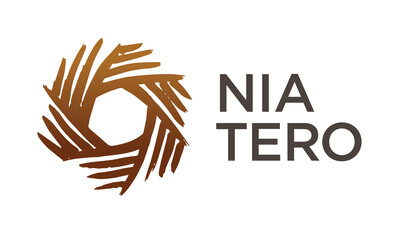NT-2024-AR - Flipbook - Page 17

OUR WORK
Amazonia
Arial view of Yakeplaopi Community
Yanomami, Amazonia | Bruno Kelly
Kiju and Awapo'i Zo'é point their fingers to the sky
Tumucumaque, Amazonia | Kamikia Kisedje (Kisedje)
Highlights
During our inaugural Amazonia partners
gathering in April in Bogotá, Colombia,
representatives from Indigenous
organizations across the Amazon gathered
for a pivotal meeting to share strategies
for defending their territories against
ongoing threats. Leaders from diverse
nations exchanged experiences on land
demarcation, legal battles, and communityled environmental monitoring, emphasizing
the importance of collective action to
protect nature and their communities.
Discussions highlighted the growing
pressures from illegal mining, deforestation,
and extractive industries, as well as the
need for stronger alliances with national and
international advocacy groups. Elders and
youth alike voiced the urgency of preserving
traditional knowledge while learning to use
digital tools, such as satellite monitoring, to
safeguard their ancestral lands. The meeting
concluded with a renewed commitment
promoting joint action, reinforcing that
the Amazon’s Indigenous Peoples remain
steadfast in their role as guardians of the
forest and of healthy ecosystems.
32
In Brazil, Nia Tero supported Indigenous
Peoples' guardianship of 46 Indigenous
territories covering 46.6 million hectares
(179,924 sq. miles), including many groups
in voluntary isolation. We partnered with
the Fundação Nacional dos Povos Indígenas
(FUNAI), Brazil’s federal agency for
Indigenous affairs, in their efforts to expand
and train new staff joining the Agency. Our
funding was critical to ensuring FUNAI could
hold the training sessions, which covered
Indigenous rights, cultural sensitivity, and
environmental protection. The sessions also
included field visits to Indigenous territories,
where new civil servants engaged with
communities to better understand their
different realities.
In Colombia, the President and head of
Environment and Interior departments
signed a historic Decree that recognized
Indigenous Peoples as environmental
authorities over their territories, considering
their ancestral knowledge and traditional
management practices. The involvement
of our partner, Organización Nacional
de los Pueblos Indígenas de la Amazonia
Colombiana (OPIAC), was essential in this
process, ensuring proper consultation with
Indigenous Peoples. The decree places
Indigenous Peoples at the helm of decisionmaking on environmental licensing, planning,
funding, and in setting environmental
regulations to protect their territories.
Nia Tero
In a major victory after nearly two decades
of pressure from Indigenous Peoples
and ally human rights and environmental
defenders, the Peruvian government
officially established the Sierra del Divisor
Occidental Indigenous Reserve, covering
nearly 515,000 hectares (1,988 square
miles). The reserve is critical to protecting
Indigenous Peoples living in voluntary
isolation, including the Remo (Isconahua),
Mayoruna (Matsés and Matis), and
Kapanawa communities. The new reserve
brings renewed hope for protection of a
region facing multiple threats from illegal
logging and infrastructure development.
Collaborative efforts between Indigenous
organizations, governmental agencies, and
conservation groups are ongoing and led to
the Loreto Regional Government canceling
72 forestry concessions that overlapped
with Indigenous reserves – a victory for
Indigenous Peoples and their relatives
in voluntary isolation.
In Suriname, the Wayana People have
been building and refining a biocultural
monitoring system supported by
Nia Tero to advance territorial rights
and advocate for the protection of their
lands. The Wayana developed indicators
to guide monitoring efforts and updated
their maps using GIS tools for cultural
resource management. The system helps
protect the Wayana's ancestral lands from
illegal invasions, including gold mining
extraction and deforestation. Vereniging
van Inheemse Dorpshoofden in Suriname
(VIDS) and the Mulokot Foundation also
engaged in Suriname’s First National
Indigenous Congress, focusing on
Indigenous Peoples’ fundamental rights.
During the 2024 Congress, participants
developed human rights proposals to
submit to national authorities.
In Ecuador, Nia Tero has been supporting
Fundación Kara Solar and the Achuar
People since 2019 in growing a fleet of
electric boats as an alternative to gasolineoperated transportation. After more than
3,000 trips and 10,000 hours of reliable
transport, the boats are increasingly seen
as an affordable and desirable alternative
to gas-polluting vessels.
Annual Report 2024
33